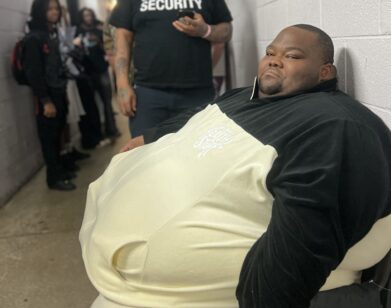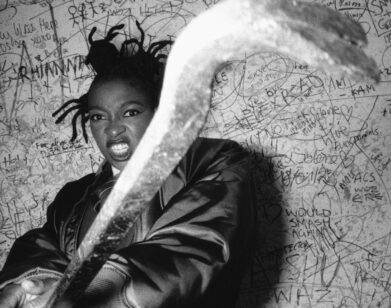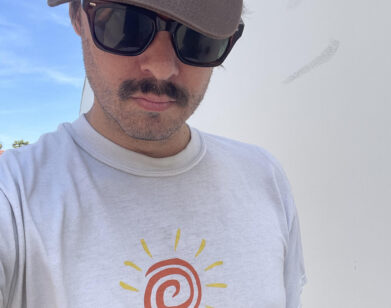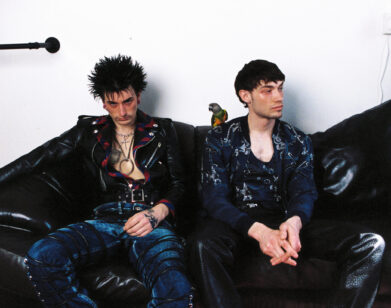TV Baby Changes the Channel
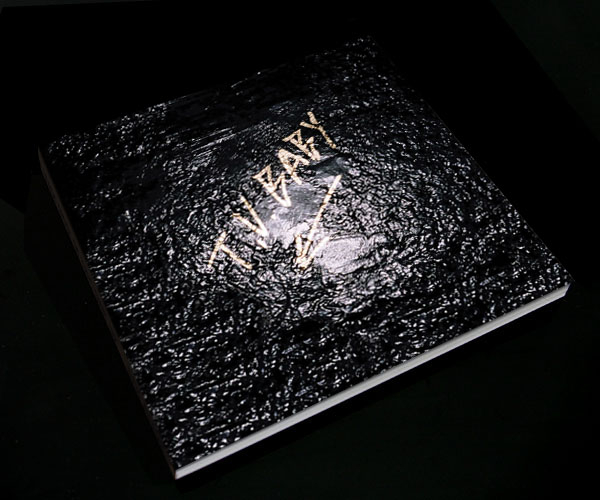
PHOTO BY COLIN DODGSON
There are fewer musical creations more maligned than the concept album. The potential for clever planning and admirable execution is great, but even for devotees of the form, the potential for getting it wrong is wide. Fortunately, TV Baby gets it right. The band, which performed at a party for Leo Fitzpatrick and made a rock opera for artist Spencer Sweeney, is the brainchild of Matthew McAuley and Brian McPeck (with Paul Sevigny, they are rock band A.R.E. Weapons). Citing David Bowie’s Low as an inspiration, McPeck says that with their self-titled debut, the band wanted to focus on production as much as they did on the musical aspect of recording. “But the songs came first,” he says. “When it comes down to it, we believe in songs. Three-minute, tell-a-story, share-your-view kind of songs.”
The album comprises 10 songs, written on the subject of television. “The concept is based around the TV Baby character, a man-child raised by TV, living in the city,” McPeck says. “The songs are, for the most part, in the first-person, and, the worldview is that people live like they’re on TV, and that TV is just as real as life.” That said, the songs are short–each one is under the three-minute mark—and very memorable. They’re bound together by McAuley’s voice and a thematic underbelly, and there’s little else. “Watch TV” and “Thrown Away” are noisy, meat-and-potatoes rock and roll straight out of the The Ramones’ basement and Sonic Youth’s recording studio. “If you don’t like what you see, you don’t have to watch me” McAuley’s rough, sexy voice growls on “Watch TV.” On the trippy nostalgic, Bowie-influenced “Do Me Like That” he laments, “I remember how you used to be” and wails “How you gonna do me like that?”
TV might seem like an old topic for 2010. Apocalyptic meditation on technology has found other objects of scrutiny, like the Internet. McPeck mourns the loss: “We will be the last TV generation… [and] we wanted to explore that. It’s really such a big part of the shared experience for us and our friends. We all grew up not only listening to the smart bands and feeling pissed off and wild, we also have a lot of the same cultural framework.” Leave it to the next band, or the next record, to take on the future: “The internet will change that, not for the worse, it’ll just be different.”
“TV hasn’t changed the way we listen to music,” McPeck explains. “The Internet has, though. We’re back to a singles-driven market. It’s like the ’50s again, in that regard. That’s why they went against the grain, compiling a 52-page book to accomany the album (published by OHWOW). McAuley and McPeck gave friends like Nate Lowman, Leo Fitzpatrick, and Aaron Young a copy of the record and asked them to contribute whatever came to mind. Testifying to the Internet’s influence, I received both the album and the book via download. The book looks gorgeous, material–a coffee table kind of book that you want to touch and be touched. On one page, we see Nate Lowman’s photograph of a “slow speed chase in White Bronco,” Alejandro Cardenas’s drawing, “M 9-tactical knife,” and Mike Bones’s short story, “My TV.” As I moved from page to page on my computer, all I had to do was bring down my finger for the click. It felt a little like changing the channel.

